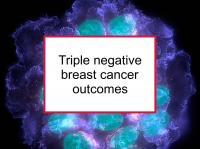Metformin is a drug used to treat type 2 diabetes and metabolic syndrome. Diabetic women taking metformin have been shown to have lower breast cancer risk and better response to chemotherapy than other diabetic women. Metformin appears to reduce risk of breast cancer by lowering circulating insulin and reducing proliferation.
In established tumors, metformin promotes apoptosis (programmed cell death) and inhibits angiogenesis of breast cancer cells. Studies have reported anticancer effects of metformin in all breast cancer subtypes, including in chemotherapy-resistant cells. Patients using metformin for type II diabetes or metabolic syndrome have improved breast cancer survival.
However, metformin appears to be particularly active against triple negative (ER-/PR-/HER2-) breast cancer. Now a new study presented at the 2014 American Association for Cancer Research (AACR) Annual Meeting has described how metformin reduces triple negative breast cancer angiogenesis, growth and metastasis.
Limitations of metformin
The remarkable anti-cancer effects of metformin has led some observers to call for studying metformin as a treatment in breast cancer patients without type 2 diabetes or metabolic syndrome. However, while metformin reduces cancer proliferation, it appears to do so only in those with insulin resistance. One study reported that metformin reduced proliferation in women with insulin resistance, but increased it in women without insulin resistance. In addition, while metformin has been shown to have tumor suppressing activity in the presence of a combination of high calorie intake, metabolic syndrome, and diabetes, it might have little or no effect on metastasis driven by inflammation.
Latest research finds metformin inhibits angiogenesis and metastasis
The study referenced at the beginning of this news article was designed to explain how metformin reduces angiogenesis, local growth, and metastatic growth of triple negative breast cancer. Angiogenesis is the process by which tumors send out signals to induce surrounding normal tissues to grow new blood vessels into the tumor.
The authors previously reported that white adipose tissue (WAT or white fat) contains two classes of CD45-CD34+ progenitors (precursor cells with some stem cell-like characteristic) with cooperative roles in triple negative breast cancer progression. The authors used a mouse model of breast cancer, in which human triple breast cancer cells were implanted in the animals' mammary fat pads, to conduct the study. The authors found that one type of human of WAT adipose cell progenitors (CD34+CD13+ mesenchymal adipose stromal cell progenitors, or ASCs) promoted local tumor growth in the mammary fat pad but were not able to migrate to distant locations, whereas the second type (CD34+CD31+ endothelial progenitors, or EPCs) were capable of migrating towards lymph nodes and promoted breast cancer cell migration, invasion and metastatic growth.
In the current study, the authors investigated metformin's ability to inhibit angiogenesis, as well as local and metastatic growth, of triple negative breast cancer by targeting these two WAT progenitors. The effect of Metformin on WAT progenitors was studied in vivo in several types of mice, with and without triple negative breast cancer. First, low-dose metformin (2mg/mL drinking water) was found to induce apoptosis and reduce the oxygen supply of WAT EPCs in mice. As a result, the number of WAT and cancer vessels were reduced.
This effect was also seen in mice on a high fat diet who received metformin. Second, WAT ASC were targeted by higher doses of metformin, which caused reduced coverage of new blood vessels by pericytes cells (which facilitate angiogenesis by wrapping around and protecting the new blood vessels).
Third, since metformin is often prescribed together with aspirin and beta blockers in diabetic and obese patients, the authors examined the effects of a combination of the three drugs in several types of mice with triple negative breast cancer grafts.
The beta blocker Atenolol was found to act synergistically with metformin in reducing both local and metastatic breast cancer growth. This effect was further enhanced by the addition of aspirin. The authors are continuing their studies by investigating the molecular mechanisms underlying the ability of metformin to inhibit WAT progenitors. They are also attempting to determine the most efficient schedules of administration of metformin, Atenolol and aspirin to target local and metastatic breast cancer growth.
Please see our articles on type 2 diabetes and what triple negative patients and survivors should eat for more information.
